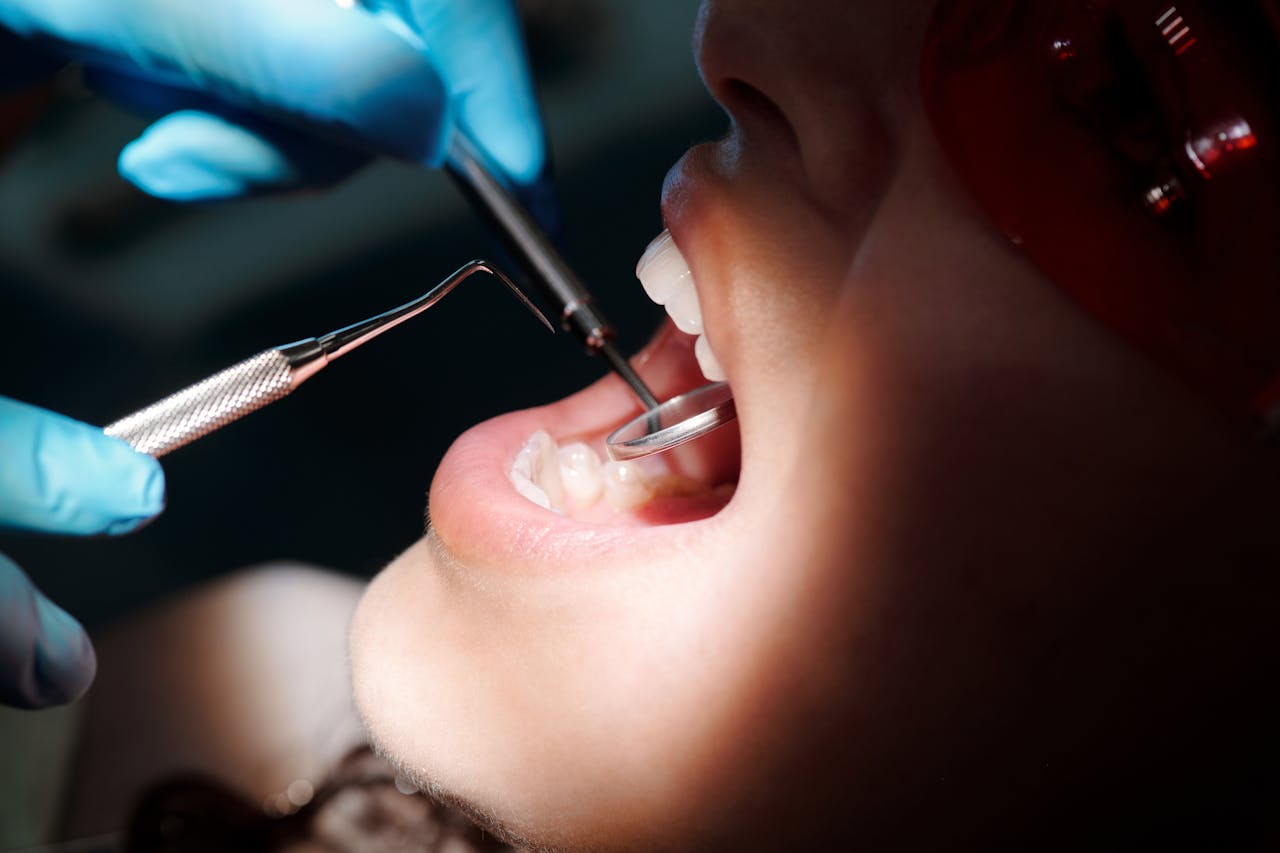A decade ago, many researchers were interested in gut health and its links to wider well-being.
Careful scientific experiments showed that what happens in the intestines and stomach affects the rest of the body. People with the right bacteria in their stools could enjoy a lower risk of some of our leading killers, including diseases like heart disease and stroke.
Now, though, the pendulum is shifting again, and the hype is very much around the mouth and the oral microbiome. Researchers believe it too may play a critical role in health and wellbeing.

But why?
Systemic Health
One route is through systemic health. What occurs in the mouth often affects the rest of the body, researchers believe, highlighting a key link that wasn’t well elucidated before. Researchers believe that inflammatory signals from the mouth from gum disease or tooth decay can circulate throughout the system causing knock-on effects on other tissues.
The issue seems to be the production of inflammatory cytokines. When the immune system detects a problem, it releases these chemicals which then travel to other tissues around the mouth. These then lead to a higher risk of diabetes, Alzheimer’s, heart disease, and certain types of cancers by interrupting the body’s normal pathways.
Furthermore, the oral microbiome can bleed into the gut microbiome, affecting global health through this secondary channel. When bad bacteria from the mouth leak into the gut, they can disrupt the microbiota, leading to all sorts of follow-on issues related to immunity and overall aging well-being.
Cardiovascular Health
There’s also significant evidence that what happens in the mouth can impact the heart and cardiovascular health, increasing the risk of the formation of arterial plaques, the primary danger in coronary artery disease.
“Plaques can form in the arteries in response to an unhealthy diet,” says dentist-finder platform, hellodent. “But bacteria in the system can worsen inflammation, making these crusty deposits more unstable. It’s these plaques that are prone to breaking off that are the most dangerous since they can block blood flow to the heart and lead to a heart attack.”
Inflammation is dangerous also for the lining of the arteries, called the endothelium. High levels of inflammatory cytokines in the blood prevent the normal restorative processes the body uses to keep these tissues free from damage. As such, it can lead to a faster buildup of dangerous, sticky, and lumpy plaques that eventually lead to heart disease.
Connection To Cognitive Decline

There’s also a surprising link between oral health and cognitive decline. The healthier the mouth is, the higher the cognitive performance of the brain.
Researchers believe the connection comes from chewing action. Research shows that people with all their teeth who can transmit chewing forces through their jaws are more likely to be healthier and have superior cerebral blood flow.
Studies originally conducted in mice showed that this might be the case. Those randomized to eat chewier pellets seem to think better in cognitive tasks during old age.
Then, clinicians hooked patients up to MRI scanners and monitored what happened when they chewed with full force, clenching their jaws as they might while consuming a hearty meal.
Finally, they randomized people into groups to see whether harder chewing forces among toothless adults with implants could improve brain function. And that’s exactly what they found: better overall brain function.
“These results are why people should be visiting a dentist who is a member of Canadian Dental Care Plan (CDCP) providers every six months at least,” says hellodent. “Catching these oral health problems early could be one of the best ways to improve health and longevity long-term.”
Metabolic Health
Then, there is the topic of metabolic health. Poor oral health may improve how humans process their nutrition, leading to more favorable outcomes long term.
Longevity research suggests that metabolic health improves in the context of proper nutrition. People eating less inflammatory foods appear to have improved insulin sensitivity and their bodies produce less of it overall because sugar in their systems gets into their cells more easily.
Researchers think the mechanism has to do with the action of the machinery that pulls glucose from the bloodstream into the cell membrane. When cells are inflamed, the mechanism of action gets gummed up and doesn’t work as well. But when they are in a low inflammation environment, it seems to work effortlessly.
Therefore, lower oral inflammation could potentially reduce the risk of conditions like type 2 diabetes. Controlling blood sugar through reduced immune and cellular response allows the pancreas to function optimally, boosting glucose metabolism and overall longevity.
Frailty

Longevity scientists are also focusing on oral health because of its links to frailty. Missing teeth and gums may prevent some people from eating the foods that are most likely to support their health (which tend to be chewy), further cutting down on their ability to eat in the best way possible to extend their lives. Many older individuals experience malnutrition because they can’t get enough of the food they require to live well.
This trend is particularly apparent among people wearing dentures. These individuals often have far worse oral health and experience declines in diet quality over time because they are worried about what might happen to their prosthetics if they consume health-promoting foods, like cooked kale or nuts.
“This research makes it even more essential that people who wear dentures visit their oral health practitioner,” says hellodent. “It’s now abundantly clear that oral health is important throughout life, but particularly for people in older age groups as it can have profound knock-on effects on what they eat.”
Ultimately, longevity scientists are focusing on oral health because of its preventative capabilities. Individuals who can take care of their mouths are less likely to experience many of the diseases of aging and may be better equipped to fight them off with proper nutrition.
Antimicrobial treatments and heroic medicine, like root canal treatment, can be useful. But dentists need to focus more on the lifestyle factors that can prevent disease in the first place.

















